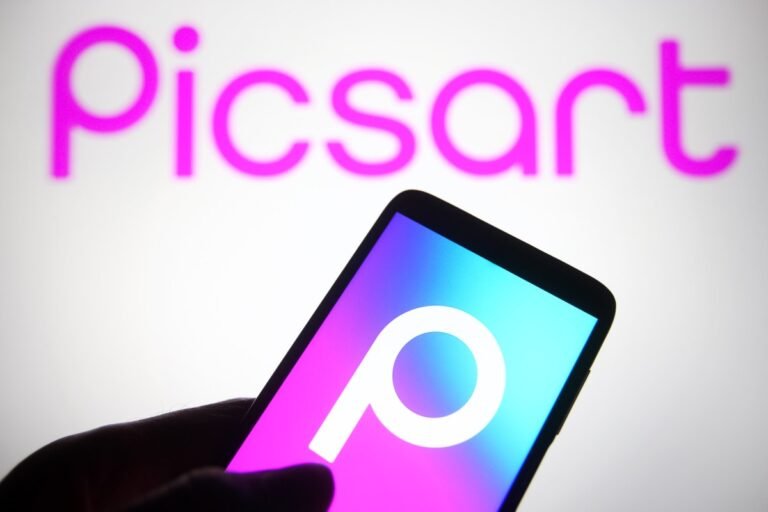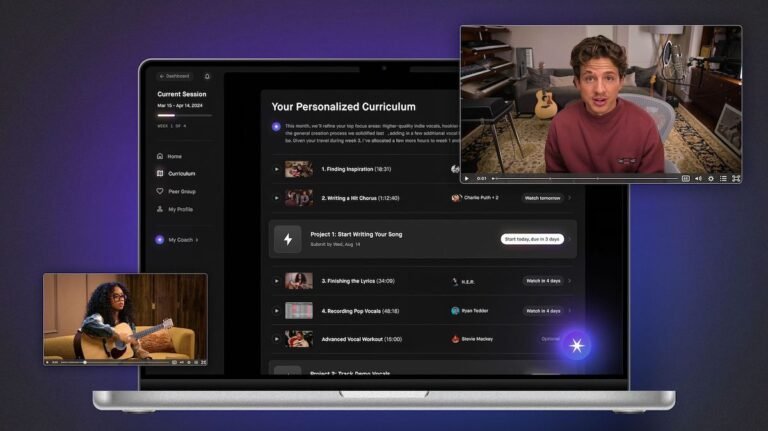
Picsart, a photo-editing startup backed by SoftBank, announced on Thursday that it’s partnering with Getty Images to develop a custom model to bring AI imagery to its 150 million users.
The company says the model will bring responsible AI imagery to creators, marketers and small businesses that use its platform.
Image Credits: Picsart x Getty Images AI ImagePicsart’s AI lab, PAIR, is building the model.
The company is also integrating Getty Images video content into Picsart’s platform and making it available to Plus members.
Picsart isn’t the first startup that Getty Images has partnered with for responsible AI imagery, as it also partnered with AI image generator, Bria, and Runway, a startup building generative AI for content creators.

Clay Canning had an idea while in high school: smartphone screen protectors that featured logos, right on the screen.
“In December 2022, I resigned from my job to pursue building Screen Skinz with Clay full time.”Now, Screen Skinz can officially announce the closing of a $1.5 million seed round led by South Loop Ventures and Abo Ventures.
The company produces custom, patent-pending phone screen protectors that feature personalized logos or slogans that are visible when the phone screen is black and then disappear when the phone is in use.
The latest fundraise allowed Screen Skinz to move manufacturing from Asia to the U.S., allowing it to more easily control its supply chain.
Screen Skinz next has some partnerships lined up and is focused on customer acquisition and deepening licensing relationships.

Meta, hell-bent on catching up to rivals in the generative AI space, is spending billions on its own AI efforts.
But an even larger chunk is being spent developing hardware, specifically chips to run and train Meta’s AI models.
Meta unveiled the newest fruit of its chip dev efforts today, conspicuously a day after Intel announced its latest AI accelerator hardware.
Google this week made its fifth-generation custom chip for training AI models, TPU v5p, generally available to Google Cloud customers, and revealed its first dedicated chip for running models, Axion.
Amazon has several custom AI chip families under its belt.

Google Cloud on Tuesday joined AWS and Azure in announcing its first custom-built Arm processor, dubbed Axion.
Based on Arm’s Neoverse 2 designs, Google says its Axion instances offer 30% better performance than other Arm-based instances from competitors like AWS and Microsoft and up to 50% better performance and 60% better energy efficiency than comparable X86-based instances.
To be fair, though, Microsoft only announced its Cobalt Arm chips late last year, too, and those chips aren’t yet available to customers, either.
In a press briefing ahead of Tuesday’s announcement, Google stressed that since Axion is built on an open foundation, Google Cloud customers will be able to bring their existing Arm workloads to Google Cloud without any modifications.
“Through this collaboration, we’re accessing a broad ecosystem of cloud customers who have already deployed ARM-based workloads across hundreds of ISVs and open-source projects.”More later this year.

OpenAI is expanding a program, Custom Model, to help enterprise customers develop tailored generative AI models using its technology for specific use cases, domains and applications.
“Dozens” of customers have enrolled in Custom Model since.
As for custom-trained models, they’re custom models built with OpenAI — using OpenAI’s base models and tools (e.g.
Fine-tuned and custom models could also lessen the strain on OpenAI’s model serving infrastructure.
Alongside the expanded Custom Model program and custom model building, OpenAI today unveiled new model fine-tuning features for developers working with GPT-3.5, including a new dashboard for comparing model quality and performance, support for integrations with third-party platforms (starting with the AI developer platform Weights & Biases) and enhancements to tooling.

Adobe today announced Firefly Services, a set of over 20 new generative and creative APIs, tools and services.
Firefly Services makes some of the company’s AI-powered features from its Creative Cloud tools like Photoshop available to enterprise developers to speed up content creation in their custom workflows — or create entirely new solutions.
In addition, the company also today launched Custom Models, which allows businesses to fine tune Firefly models based on their assets.
Custom Models is already built into Adobe’s new GenStudio.
In addition to these AI features, Firefly Services also exposes tools for editing text layers, tagging content and applying presets from Lightroom, for example.

The startup built its platform on top of the open source Stable Diffusion model, letting users enter text-based prompts to generate their creations.
The company was founded by Darya Sesitskaya, a former Snap design lead responsible for designing Snapchat’s AR camera, Lens Studio, Lens Cloud, and more.
She also worked at Wanna (formerly Wannaby), an AR technology company known for its virtual try-ons for sneakers, clothing, and watches.
Since launching its beta version, Shader has garnered approximately 3,000 downloads.
In the near future, we also plan to implement the ability to create voice-to-AR effects and 3D background replacements,” says Sesitskaya.

Masterclass rival Studio launched today its first AI-powered online school for musicians, songwriters and producers to learn from top artists in the industry, create new songs, get feedback from like-minded peers and access Studio’s AI coach that keeps them on track with personalized schedules and deadlines.
Studio’s Music School provides thousands of exclusive lessons taught by over 110 popular artists and instructors, including Charlie Puth, Kygo, H.E.R., Idina Menzel, Pentatonix, Ryan Tedder (frontman for OneRepublic), Alexander 23, Tainy, Chelsea Cutler, Jonas Blue, Shane McAnally and Louis Bell, among others.
There are over 100 topics to choose from, such as vocal production, songwriting, music business, sound design, music theory, cover songs, and musical theater, as well as genres like alternative, classical, country, EDM, folk, hip-hop, indie pop, lo-fi, metal, R&B and more.
The online accelerator features an AI-powered coach that leverages OpenAI’s GPT-4 to deliver personalized curriculums every month based on someone’s interests, specific goals, learning style and level of experience.
It should be noted that Studio’s Music School isn’t designed for beginners looking to start a career in the music industry but for creatives who already know the basics and want to enhance their skills.

Top executives report to the CEO, the CEO answers to the board, and the board serves at the whim of the shareholders.
On Sunday evening, the oil supermajor filed a lawsuit in federal court asking for permission to ignore a shareholder resolution at its next annual meeting.
The new shareholder resolution calls on the oil company to reduce its Scope 3 emissions or those that result from the use of its products.
Other shareholders tended to be deferential to management, letting them run their business as they saw fit.
But as shareholder primacy took root in the public consciousness, more shareholders began to exercise their rights.

WhatsApp announced today that it’s launching a new feature on iOS that lets users create, edit and share their own stickers.
You can personalize stickers using WhatsApp’s suite of editing tools, including text, drawing and the ability to overlay other stickers.
Once you send a custom sticker, it will automatically be saved in your sticker tray so you can use it again whenever you would like to.
If you want to edit an existing sticker, you need to open the sticker tray and long press the sticker you want to edit.
WhatsApp says the new sticker maker, which is already available on WhatsApp web, is rolling out on iOS 17+ over the coming days.













